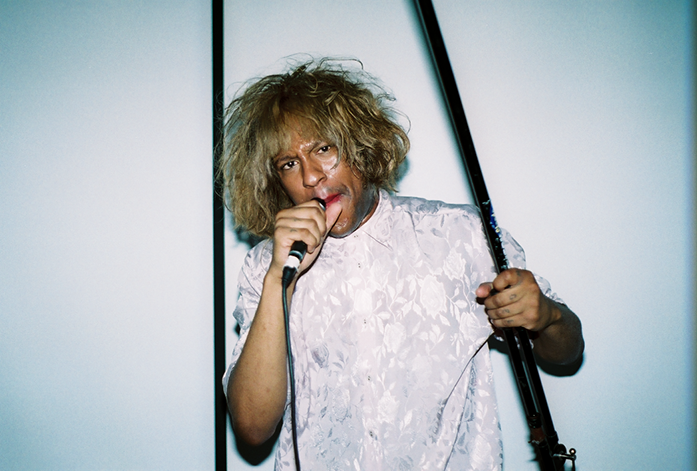By Brett Shaw
A multitalented rapper and performance artist known by the name Mykki Blanco bends the confines of gender, bringing theatricality and hard-cutting issues to the music industry through fashion, videography, and a poetic insight to her personal life.
Blanco is the feminine stage persona of cis-male Michael Quattlebaum. When the wig and makeup come on, Quattlebaum turns on the performance, putting forth themes of freedom and female empowerment. Now, Blanco will supply her high energy and R&B diva aesthetic in a colorful performance at Blue Moose, 211 Iowa Ave., at 11 p.m. Thursday as a part of Mission Creek Festival.
Derived from Lil’ Kim’s alter ego, Kimmy Blanco, the persona arose from Quattlebaum’s early YouTube videos. The persona was met with fanatical reception and soon transformed into a music and performance icon. Blanco’s expression and performance of gender lead many to connect her art with that of drag queens. While inspired by drag, Blanco does not want to be labeled as a drag act.
“I always have to tell people Mykki Blanco did not start as a drag character,” said Quattlebaum in an interview with MTV. “Mykki Blanco started as a video-art project when I was already trans-identified. I was already going by ‘she.’”
Quattlebaum’s gender identity has shifted numerous times and been shaped over time, and the distinction and aesthetic of Blanco has changed as well. The two influence one another and grow together. Blanco has released several poetry collections, EPs, and mix tapes prior to the release of her self-titled 2016 album, Mykki.
Drawing from her literary past, Blanco’s latest hip-hop album artfully discusses personal topics such as love, homophobia, and struggles with addiction. One song from the album, “You Don’t Know Me,” is about the stigma of HIV, something the rapper struggles with in her daily life. In 2015, Blanco came out to fans as HIV positive through Facebook. A tragedy that she thought would end her career actually lifted a weight off of her shoulders and drew mass support from fans.
“The more that people feel they know something intimate about you, that creates this sort of bond,” Blanco said in an MTV documentary.
The music videos released with Blanco’s albums and EPs really bring her artistry to another level. Alluding to Romeo and Juliet, the narrative video for “High School Never Ends” beautifully tells a gruesome tale of the battle between love and bigotry. While at times sexually explicit, the video depicts the beauty of romance and tragedy of reality.
The trippy video for “Loner” creates intense, visually stimulating moments with dramatic shots and vibrant color to create an emotionally moving piece regarding the sensation of loneliness. The futuristic use of virtual reality, high fashion, and a unique fluidity of gender make for an absolutely stunning video performance.
While not wanting to be labeled as the queer rapper, Blanco embraces the acceptance from audiences and the inspiration that she can provide to queer fans.
“A lot of the things that made me so taboo in the past are now mainstream,” she said in her MTV documentary.
As the world collectively begins to embrace queer culture, more people will be looking toward such artists as Blanco to provide fresh perspectives on music and performance. Her high energy, artistic devotion, and poetic verses make her a rising act to look out for during this Mission Creek week.



